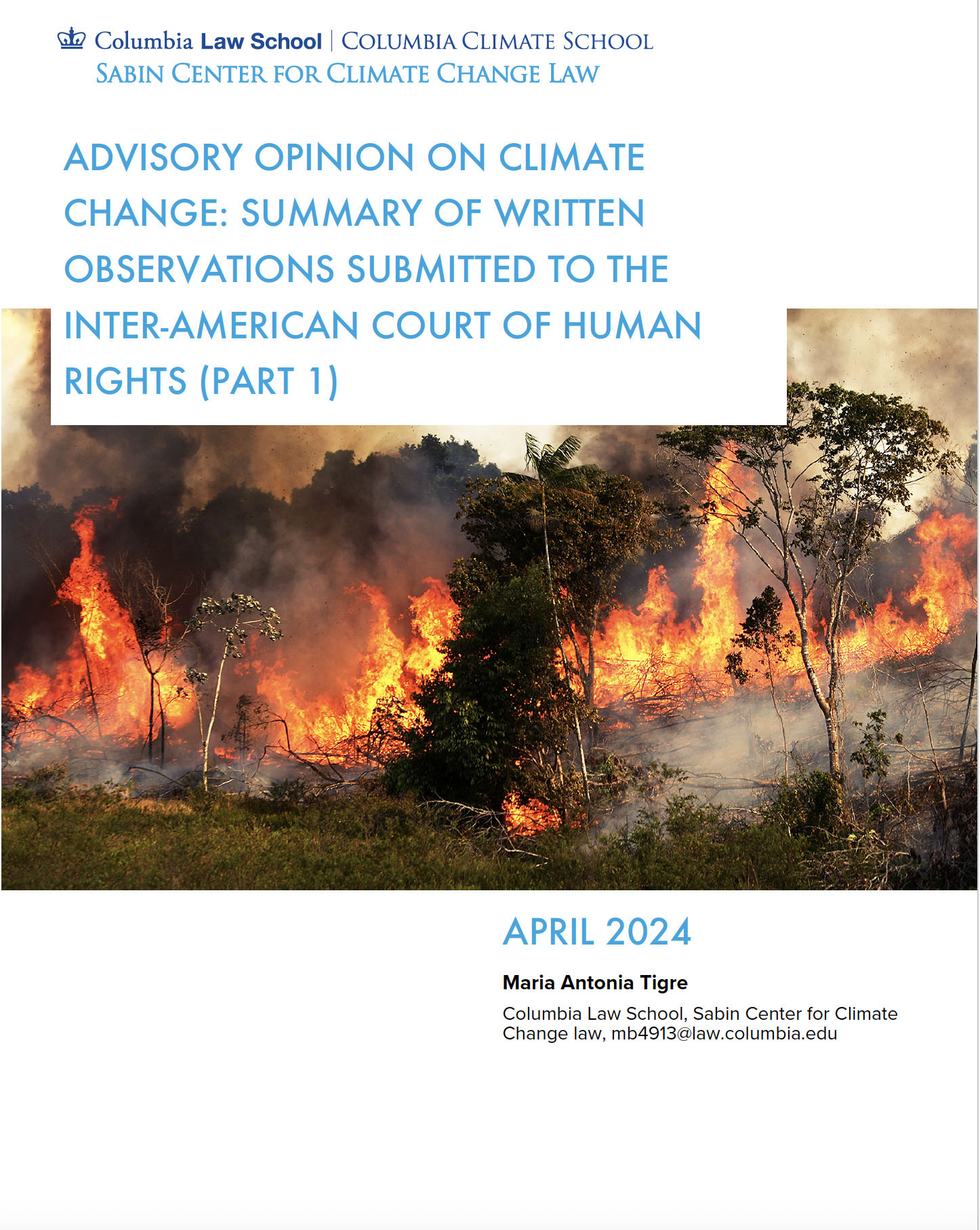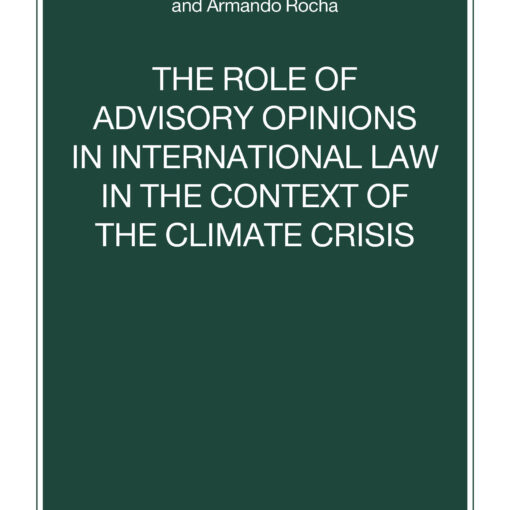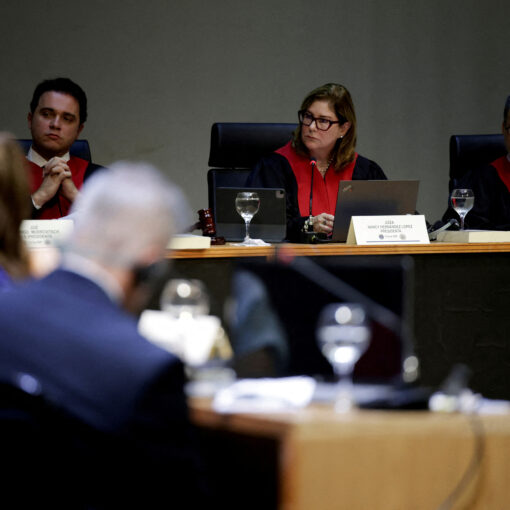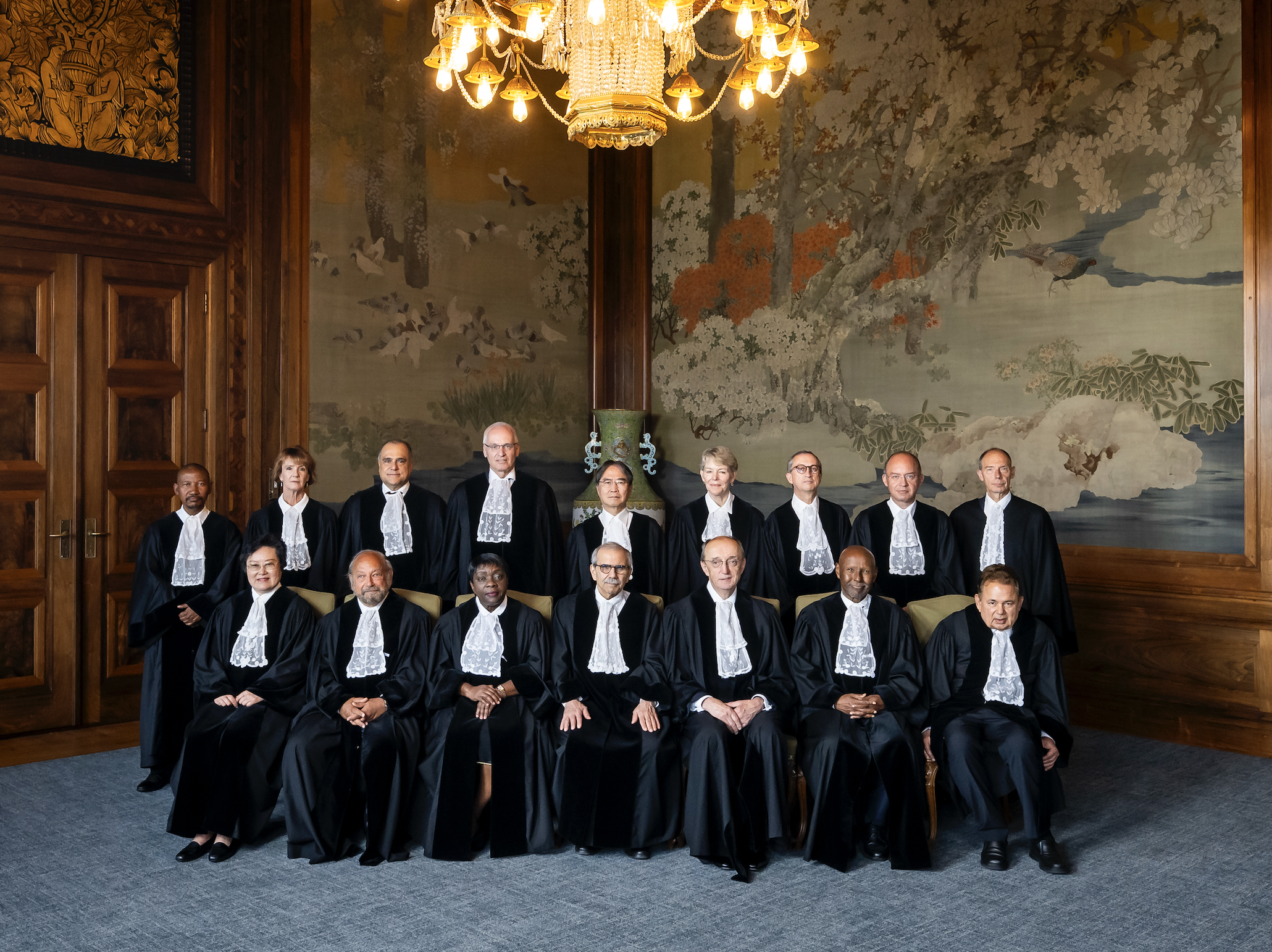Today, the Sabin Center for Climate Change Law published a new report titled Advisory Opinion On Climate Change: Summary of Written Observations Submitted to the Inter-American Court of Human Rights (Part 1).
Faced with an escalating climate emergency, the global community is increasingly turning to international courts and tribunals for guidance on addressing the multifaceted challenges posed by climate change. Against this backdrop, in January 2023, the Foreign Ministers of Chile and Colombia catalyzed a pivotal moment in the quest for climate justice by requesting an advisory opinion from the Inter-American Court of Human Rights (IACtHR). The request aimed to elucidate the scope of state obligations under international human rights law, particularly within the context of the American Convention on Human Rights.
The IACtHR received an overwhelming response to this groundbreaking initiative, with 255 amicus brief submissions pouring in from various stakeholders across the globe. The Sabin Center has summarized many of those submissions in a new report out today: Advisory Opinion On Climate Change: Summary of Written Observations Submitted to the Inter-American Court of Human Rights (Part 1). The report includes summaries of 54 written submissions from (i) States, (ii) organs of the Organization of American States (OAS), (iii) international organs and bodies, (iv) state bodies, and (v) communities.
The submissions explore major themes on climate change and human rights, including:
- Human Rights Affected by the Climate Crisis: The submissions delves into the profound impact of the climate crisis on fundamental human rights, ranging from the right to life and health to access to food, water, and a sustainable environment.
- State Obligations: A central focus of the submissions revolves around the imperative for states to fulfill their obligations in mitigating climate change, adapting to its consequences, and providing support to affected populations.
- Differentiated Responsibilities and the CBDR-RC Principle: The principle of Common But Differentiated Responsibilities and Respective Capacities (CBDR-RC) emerges as a cornerstone, highlighting the need for equitable distribution of responsibilities among nations based on historical emissions and capacities.
- Impact on Vulnerable Groups: Vulnerable communities, including indigenous groups, women, children, and the elderly, are disproportionately affected by the climate crisis. The submissions underscores the necessity for tailored obligations to address the specific needs of these groups.
- Regional Impacts in Latin America and the Caribbean: Through detailed descriptions of the submissions, the report elucidates the diverse impacts of climate change across different regions of Latin America and the Caribbean, emphasizing the vulnerabilities of coastal communities and small island states.
- Impact on Indigenous Groups: Indigenous communities, in particular, face serious threats due to their intimate connection with the environment. The report advocates for state obligations to uphold free, prior, and informed consent and safeguard indigenous cultural knowledge and biodiversity.
The report is the first installment in a series. Part 1 covers 54 of the submissions received by the IACtHR and is being published prior to the IACtHR hearings, which will be held in Barbados on April 23, 24, and 25, 2024. Summaries of the remaining submissions will be published in the coming weeks.
Related Work
The Sabin Center has published a number of reports on the three intersecting advisory opinion requests currently pending before international courts and tribunals (the International Court of Justice (ICJ), the International Tribunal of the Law of the Seas (ITLOS), the IACtHR). Maria Antonia Tigre has previously written about the origins and perspectives of the three intersecting advisory opinions here. A report on the written submissions to ITLOS can be found here.
The Sabin Center submitted an amicus brief to the IACtHR in November 2023. The brief focuses on the role of climate science and informs the assessment of state responsibilities in dealing with the adverse effects of climate change. The brief can be found here.
Read the new report here.
Dr. Maria Antonia Tigre is the Director of Global Climate Litigation at the Sabin Center for Climate Change Law at Columbia Law School.






